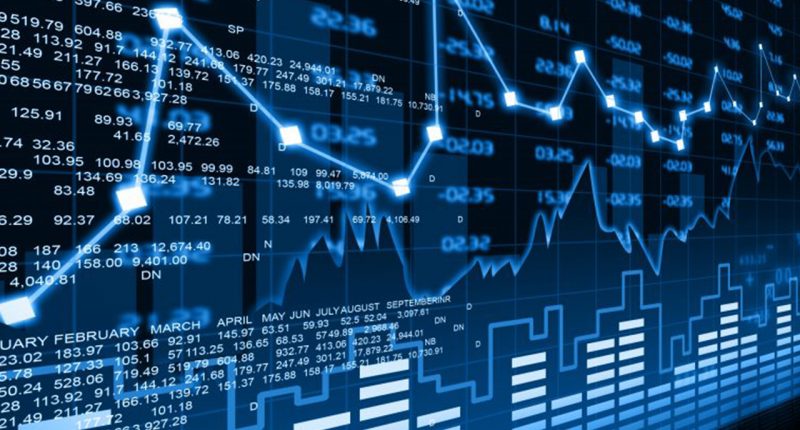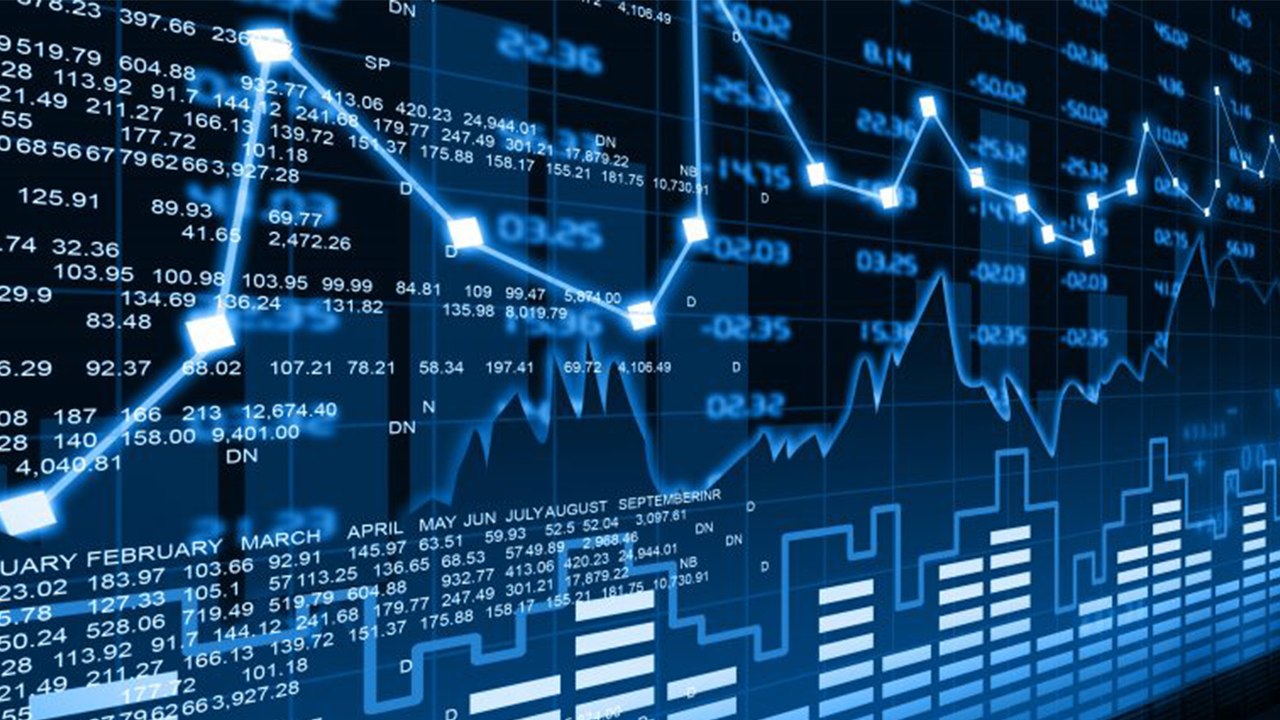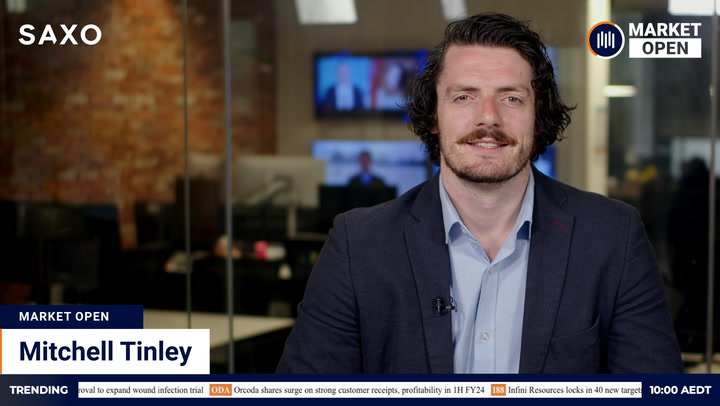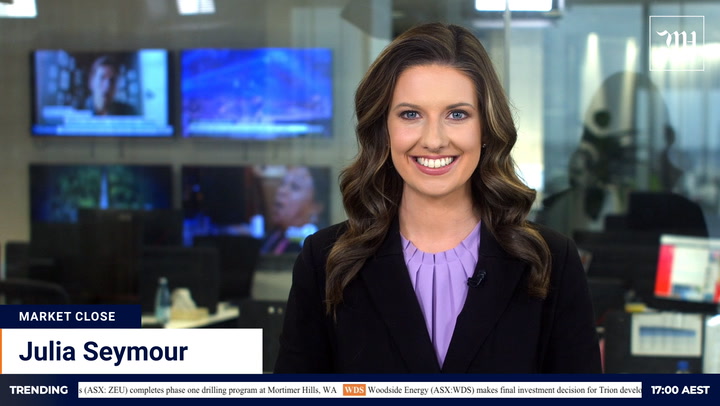A late fade on Wall Street points to a negative start to today’s ASX session.
US stocks retreated as gains in cyclical stocks were outweighed by declines in Big Tech. A rebound in oil boosted energy stocks. Gold rallied for the first time in three sessions. Iron ore and copper retreated. The dollar traded below 76 US cents.
ASX futures eased 12 points or 0.18 per cent, signalling a soft start following yesterday’s 0.5 per cent against-the-global-trend rally.
Wall Street
An accelerating decline in tech stocks delivered an ugly end to the session. The Nasdaq Composite slid 266 points or 2.01 per cent as the US ten-year yield reversed early weakness. The S&P 500 turned negative in the final hour of trade, fading to a loss of 21 points or 0.55 per cent despite advances in the energy, industrials, materials and financial sectors.
Cyclical sectors kept the Dow above water until the final minutes after Federal Reserve Chair Jerome Powell and Treasury Secretary Janet Yellen talked up the outlook for the economy. Powell said he expected “a very, very strong year in the most likely case”. The Dow Jones Industrial Average finished three points or 0.01 per cent in the red.
Companies best placed to benefit from economic expansion outperformed as Powell and Yellen testified before Congress. On the Dow, Caterpillar gained 1.4 per cent and Dow Inc 2.1 per cent. Energy stocks rebounded with oil prices after a container ship blocked the Suez Canal. Chevron gained 2.7 per cent.
“There’s going to be a very, very strong year in the most likely case,” Powell said. “There are of course risks to the upside and downside, but it should be a very strong year from a growth standpoint.”
The highly-valued tech giants that weathered the pandemic best struggled as investors favoured companies with more upside during a recovery. Apple, Amazon, Microsoft and Facebook declined. The Russell 1000 Growth Index fell 1.4 per cent, versus a flat finish for the Value Index.
“Post war, cyclical companies become the new growth stocks,” Tom Lee of Fundstrat Global Advisors told CNBC. “That’s what happens. It happened in Iraq and the Middle East. It happened in Japan. It happened in Korea after the Korean War. It happened in the U.S. after World War II and the Korean War. This is a post-war environment.”
Reddit favourite GameStop skidded 33.8 per cent after the company indicated it will take advantage of an elevated stock price by tapping shareholders for funds via a capital raising. The best-known of the so-called “meme stocks” reported fourth-quarter earnings yesterday.
Australian outlook
Broadly negative leads for the session ahead, but there was a bit to like in the underlying detail in the US action. The two sectors that matter most for the ASX – materials and financials – gained 0.7 and 0.4 per cent, respectively. The energy sector bounced 2.5 per cent as the MV Ever Given‘s mishap in the Suez Canal threw oil a lifeline.
The S&P/ASX 200 stood out like sore thumb during a bearish Asian session yesterday, rising 0.5 per cent as the Asia Dow slumped 2.09 per cent. Both Hong Kong and Japan lost more than 2 per cent, China 1.3 per cent.
Dives in the dollar and bond yields go some way to explaining the ASX’s outperformance. The Aussie tumbled below 76 US cents, easing concerns the rising currency was becoming a headwind for exports. The yield on ten-year government bonds – a headwind for growth stocks – fell to a three-week low, encouraging buyers to pick up battered proxies such as healthcare and REITs. A round of upbeat economic data added to confidence in the outlook.
The dollar continued to retreat overnight, falling another 0.25 per cent to 75.88 US cents as Powell and Yellen talked up the American recovery.
Commodities
A day after plunging 6 per cent, oil regained all of its losses as a container ship blocked the Suez Canal, halting traffic through a crucial link for the oil industry. Brent crude bounced $3.62 or 6 per cent to settle at US$64.41 a barrel.
“The transit point is key for a number of commodities, and particularly crude,” Matt Smith, director of commodity research at ClipperData, said. “The supportive influence of the blockage is transitory, however. Once we see traffic flowing again, prices will likely come back under pressure.”
Iron ore dipped back below US$160 a tonne amid lingering concerns about Chinese pollution controls. The spot price for ore landed in China slipped 95 cents or 0.6 per cent to US$159.55 a tonne. BHP’s US-listed stock bounced 0.67 per cent and its UK-listed stock 0.54 per cent. Rio Tinto gained 0.63 per cent in the US and 1.44 per cent in the UK.
Gold rose for the first time in three sessions amid reports of tentative haven buying and short covering. Gold for April delivery settled $8.10 or 0.5 per cent higher at US$1,733.20 an ounce. The NYSE Arca Gold Bugs Index fell 1.05 per cent.
Copper declined 0.4 per cent to US$4.06 a pound.







